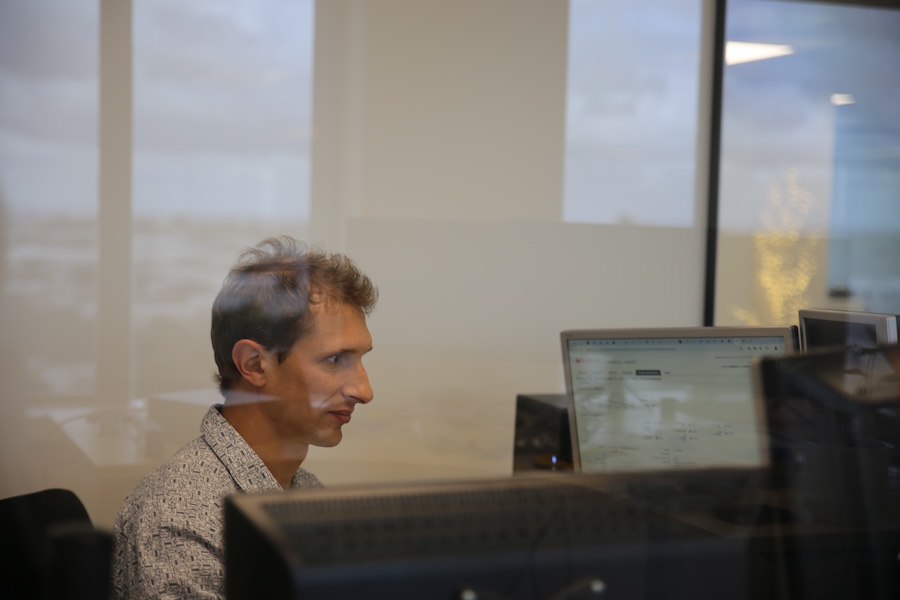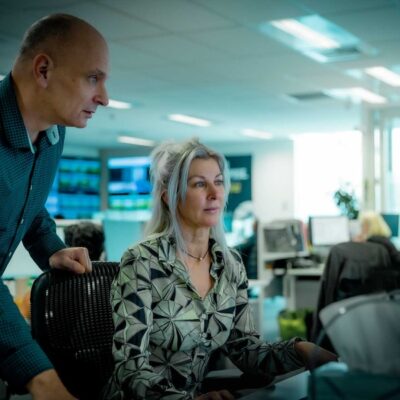From tech start-up to AI leader
Pictured above: Jonathan Spence.
Automation technology is reshaping industries worldwide, with Auckland-based Xtracta leading the charge from New Zealand in the area of document data extraction. Founded by Jonathan Spence, Xtracta has grown from a family-inspired project into a global provider of AI-driven data extraction services.
The problem that Xtracta aims to solve, the need for manually entering data from documents is an inefficient overhead ubiquitous for all businesses from SME to multi-million dollar enterprises world-wide. The genesis of Xtracta started as a solution to a problem experienced by Founder Jonathan Spence while helping out in a family business providing document scanning and data entry as an outsourced service.
As a self-confessed IT geek, Jonathan was called on while he was studying at university to help the business with its IT and software systems. He quickly uncovered opportunities to improve the business’ automation with laborious manual data entry processes. While the business was aware of technology available for this task, options available were limited, expensive and required highly trained consultants who were sparsely available in New Zealand.
Working in enterprise IT was a step forward from Jonathan’s previous side hustle of supplying fast and unfiltered internet to kids in a local boarding school.
“The family business wanted to go beyond basic document archiving. I was tasked with managing their IT and had to find software to do data extraction… I tried products from all over the world, but nothing worked to my satisfaction,” 34-year-old Jonathan says.
“The business saw that extracting valuable information from documents could really streamline business processes, and I began exploring ways to make that happen.”
This unmet need inspired Jonathan to develop a solution, turning a small-scale project into what we now know as Xtracta.
That business was an early investor in Xtracta, from investing $5,000 into what started as a small project to now being a shareholder in a Xtracta as a supplier of data extraction software in markets globally, Spence states it has “been a pretty good investment for them”.
Early challenges: Pioneering AI
Xtracta leverages advanced AI and machine learning to extract data from various documents, such as invoices, purchase orders, and contracts, without relying on pre-defined templates.
It processes documents via OCR (Optical Character Recognition), or from purely digital documents, finds specific values and validates the extracted data for accuracy, and learns from corrections to improve over time.
The clean, structured data is then seamlessly integrated into systems like ERP and CRM platforms, automating workflows and reducing manual effort.
In its early years, Xtracta faced significant hurdles.
Securing investment was particularly difficult in New Zealand’s fledgling tech start-up ecosystem.
“Back then, New Zealand’s investment scene wasn’t very receptive to tech start-ups. We relied heavily on personal networks and early customer-partners who believed in our vision,” says Jonathan.
A turning point came when Xtracta secured a government grant to fund research and AI development in 2014, positioning it as an early pioneer in AI for business software.
At a time when automation and AI were considered futuristic, convincing potential clients of the technology’s value also proved challenging.
“Back then, AI was like something out of science fiction,” Jonathan says. “People either thought of Robin Williams’ friendly AI or The Terminator,” he laughs.
Recruiting technical talent was another early hurdle.
With no formal training in software development, Jonathan had to teach himself programming to evaluate and hire the right people.
“I learned programming out of necessity,” he says. “It allowed me to build the team we needed to create the technology we envisioned.”
Now Xtracta has a team of 30 people with 10 people working from overseas and with many clients based outside of New Zealand in markets such as the US, Canada, South Asia, Africa and Europe.
Money-making strategy pivot
Initially, Xtracta targeted mid-sized businesses through direct sales. However, Jonathan soon realised that supporting numerous small clients was unsustainable, which led to a pivotal shift in strategy – partnering with established software providers instead.
“This shift allowed us to scale far more effectively,” Jonathan explains.
“By embedding Xtracta’s technology into existing platforms, we could reach more customers while keeping operational costs down.”
The partnership-based approach, akin to the “Intel Inside” model, enabled Xtracta to focus on innovation while leveraging the customer bases of their software partners.
This strategy proved to be transformative for the start-up and cemented Xtracta’s market presence.
Multifaceted leadership
As Xtracta has expanded, Jonathan’s role has evolved to encompass operations, sales, and strategic planning.
His cross-functional approach allows him to align different departments and maintain focus on client needs.
“On any given day, I might be solving operational challenges, supporting the sales team, or working with the tech team on product updates,” he says.
“My role is to connect the dots and ensure everything stays aligned.”
Juggling many work responsibilities and being a dad means Jonathan has a few productivity hacks that are essential on the daily.
Having five screens at his work desk and often avoiding lunch, are just two of the more unconventional.
“Heavy meals take energy away from thinking,” he says, highlighting how this habit boosts focus during high-pressure situations.
He always uses keyboard shortcuts and tools like Ditto, which saves copied items for reuse, to minimise repetitive tasks. Recently introducing language-based Gen AI systems has been another big productivity boost.

The future of AI
Jonathan envisions a bright future for Xtracta, with plans to expand even further globally and enhance its AI capabilities.
The company aims to invest in advanced machine learning models and explore applications in specialised sectors that demand precise automation.
“We’re focused on staying at the cutting edge of AI. This means continuously optimising our technology and exploring new markets.”
Jonathan sees generative AI and robotics as key tech trends shaping the future.
While generative AI creates excitement, he acknowledges its flaws, such as producing inaccurate data.
“Generative AI is at the peak of its hype cycle,” he says, predicting a stabilisation phase as its practical uses develop.
He highlights robotics’ growing role in industries like manufacturing and agriculture, where automation addresses labour shortages and boosts efficiency.
“Robotics is critical in developed countries with rising wages and stricter safety rules,” he says.
For Xtracta specifically, Jonathan envisions smarter AI applications that go beyond data extraction. By leveraging its vast client data, the company aims to provide insights into cost tracking, efficiency, carbon footprints, and helping businesses make smarter decisions.
Reflecting on his entrepreneurship journey Jonathan has this advice for tech geeks looking to bring the next big thing to market. “Be ready to adapt and learn. Success often comes from tackling the unexpected head-on.”






